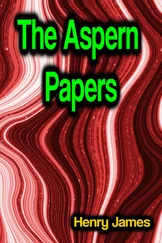Henry James - The American Scene
Здесь есть возможность читать онлайн «Henry James - The American Scene» — ознакомительный отрывок электронной книги совершенно бесплатно, а после прочтения отрывка купить полную версию. В некоторых случаях можно слушать аудио, скачать через торрент в формате fb2 и присутствует краткое содержание. Жанр: unrecognised, на английском языке. Описание произведения, (предисловие) а так же отзывы посетителей доступны на портале библиотеки ЛибКат.
- Название:The American Scene
- Автор:
- Жанр:
- Год:неизвестен
- ISBN:нет данных
- Рейтинг книги:3 / 5. Голосов: 1
-
Избранное:Добавить в избранное
- Отзывы:
-
Ваша оценка:
- 60
- 1
- 2
- 3
- 4
- 5
The American Scene: краткое содержание, описание и аннотация
Предлагаем к чтению аннотацию, описание, краткое содержание или предисловие (зависит от того, что написал сам автор книги «The American Scene»). Если вы не нашли необходимую информацию о книге — напишите в комментариях, мы постараемся отыскать её.
The American Scene — читать онлайн ознакомительный отрывок
Ниже представлен текст книги, разбитый по страницам. Система сохранения места последней прочитанной страницы, позволяет с удобством читать онлайн бесплатно книгу «The American Scene», без необходимости каждый раз заново искать на чём Вы остановились. Поставьте закладку, и сможете в любой момент перейти на страницу, на которой закончили чтение.
Интервал:
Закладка:
Who, for that matter, shall speak, who shall begin to speak, of the alacrity with which, in the New England scene (to confine ourselves for the moment only to that), the eye and the fancy take to the water?—take to it often for relief and security, the corrective it supplies to the danger of the common. The case is rare when it is not better than the other elements of the picture, even if these be at their best and its strength is in the fact that the common has, for the most part, to stop short at its brink; no water being intrinsically less distinguished—save when it is dirty—than any other. By a fortunate circumstance, moreover, are not the objects usually afloat on American lakes and rivers, to say nothing of bays and sounds, almost always white and wonderful, high-piled, characteristic, fantastic things, begotten of the native conditions and shining in the native light? Let my question, however, not embroider too extravagantly my mere sense of driving presently, though after nightfall, and in the public conveyance, into a village that gave out, through the dusk, something of the sense of a flourishing Swiss village of the tourist season, as one recalls old Alpine associations: the swing of the coach, the cold, high air, the scattered hotels and their lighted windows, the loitering people who might be celebrated climbers or celebrated guides, the resonance of the bridge as one crossed, the gleam of the swift river under the lamps. My village had no happy name; it was, crudely speaking, but Jackson, N. H., just as the swift river that, later on, in the morning light, to the immediate vision, easily surpassed everything else, was only the river of the Wildcat—a superiority strictly comparative. The note of this superiority was in any case already there, for the first, for the nocturnal impression; scarce seen, only heard as yet, it could still give the gloom a larger lift than any derived from a tour of the piazzas of the hotels. This tour, undertaken while supper was preparing, in the interest of a study of manners, left room, all the same, for much support to the conviction I just expressed, the conviction that, name for name, the stream had got off better than the village, that streams couldn't, at the worst, have such cruel names as villages, and that this too, after all, was an intimation of their relative value. That inference was, for the actual case, to be highly confirmed; the Wildcat River, on the autumn morning, in its deep valley and its precipitous bed, was as headlong and romantic as one could desire; though, indeed, I am not, in frankness, prepared to say better things of it than of the great picture, the feature of the place, to a view of which I mounted an hour or two after breakfast.
Here, at least, where a small and charming country-house had seated itself very much as the best box, on the most expensive tier, rakes the prospect for grand opera—here might manners too be happily studied, save perhaps for their being enjoyed at too short range. Here, verily, were verandahs of contemplation, but admitting to such images of furnished peace, within, as could but illustrate a rare personal history. This was a felicity apart; whereas down in the valley, the night before, the story told at the lighted windows of the inns was precisely, was above all, of advantages impartially diffused and shared. That, at any rate, would seem in each instance the most direct message of the life displayed to the observer, on the fresher evenings, in the halls and parlours, the large, clean, bare spaces (almost penally clean and bare), where plain, respectable families seemed to sit and study in silence, with a kind of awe indeed, as from a sense of inevitable doom, their reflected resemblances, from group to group, their baffling identities of type and tone, their inability to escape from participations and communities. My figure of the opera-box, for the other, the removed, case, is justified meanwhile by the memory of the happy vision that was to make up to me for having missed Mount Washington at Intervale; the something splendidly scenic in the composition of the "Presidential range," hung in the air, across the valley, with its most eminent object holding exactly the middle of the stage and the grand effect stretching without a break to either wing. Mount Washington, seen from such a point of vantage, a kind of noble equality of intercourse, looks admirably, solidly seated, as with the other Presidential peaks standing at his chair; and the picture is especially sublime far off to the right, with the grand style of Carter's Dome, a masterly piece of drawing against the sky, and the romantic dip of Carter's Notch, the very ideal of the pass (other than Alpine) that announces itself to the winding wayfarer, for beauty and interest, from a distance. The names, "Presidential" and other, minister little to the poetry of association; but that, throughout the American scene, is a source of irritation with which the restless analyst has had, from far back, to count. Charming places, charming objects, languish, all round him, under designations that seem to leave on them the smudge of a great vulgar thumb—which is precisely a part of what the pleading land appears to hint to you when it murmurs, in autumn, its intelligent refrain. If it feels itself better than so many of the phases of its fate, so there are spots where you see it turn up at you, under some familiar tasteless infliction of this order, the plaintive eye of a creature wounded with a poisoned arrow.
You learn, after a little, not to insist on names—that is not to inquire of them; and are happiest perchance when the answer is made you as it was made me by a neighbour, in a railway train, on the occasion of my greatly admiring, right and left of us, a tortuous brawling river. I had supposed it for a moment, in my innocence, the Connecticut—which it decidedly was not; it was only, as appeared, a stream quelconque a stream without an identity. That was better, somehow, than the adventure of a little later—my learning, too definitely, that another stream, ample, admirable, in every way distinguished, a stream worthy of Ruysdael or Salvator Rosa, was known but as the Farmington River. This I could in no manner put up with—this taking by the greater of the comparatively common little names of the less. Farmington, as I was presently to learn, is a delightful, a model village; but villages, fords, bridges are not the godparents of the element that makes them possible, they are much rather the godchildren. So far as such reflections might be idle, however, in an order so differently determined, they easily lost themselves, on the morrow of Jackson, N. H., in an impression of sharper intensity; that of a drive away, on the top of the coach, in the wondrous, lustrous early morning and in company that positively gave what it had to give quite as if it had had my curiosity on its conscience. That curiosity held its breath, in truth, for fear of breaking the spell—the spell of the large liberty with which a pair of summer girls and a summer youth, from the hotel, took all nature and all society (so far as society was present on the top of the coach) into the confidence of their personal relation. Their personal relation—that of the young man was with the two summer girls, whose own was all with him; any other, with their mother, for instance, who sat speechless and serene beside me, with the other passengers, with the coachman, the guard, the quick-eared four-in-hand, being for the time completely suspended. The freedoms of the young three—who were, by the way, not in their earliest bloom either—were thus bandied in the void of the gorgeous valley without even a consciousness of its shriller, its recording echoes. The whole phenomenon was documentary; it started, for the restless analyst, innumerable questions, amid which he felt himself sink beyond his depth. The immodesty was too colossal to be anything but innocence—yet the innocence, on the other hand, was too colossal to be anything but inane. And they were alive, the slightly stale three: they talked, they laughed, they sang, they shrieked, they romped, they scaled the pinnacle of publicity and perched on it flapping their wings; whereby they were shown in possession of many of the movements of life. Life, however, involved in some degree experience—if only the experience, for instance, of the summer apparently just spent, at a great cost, in the gorgeous valley. How was that, how was the perception of any concurrent presence, how was the human or social function at all, compatible with the degree of the inanity? There was, as against this, the possibility that the inanity was feigned, if not the immodesty; and the fact that there would have been more immodesty in feigning it than in letting it flow clear. These were maddening mystifications, and the puzzle fortunately dropped with the arrival of the coach at the station.
Читать дальшеИнтервал:
Закладка:
Похожие книги на «The American Scene»
Представляем Вашему вниманию похожие книги на «The American Scene» списком для выбора. Мы отобрали схожую по названию и смыслу литературу в надежде предоставить читателям больше вариантов отыскать новые, интересные, ещё непрочитанные произведения.
Обсуждение, отзывы о книге «The American Scene» и просто собственные мнения читателей. Оставьте ваши комментарии, напишите, что Вы думаете о произведении, его смысле или главных героях. Укажите что конкретно понравилось, а что нет, и почему Вы так считаете.












